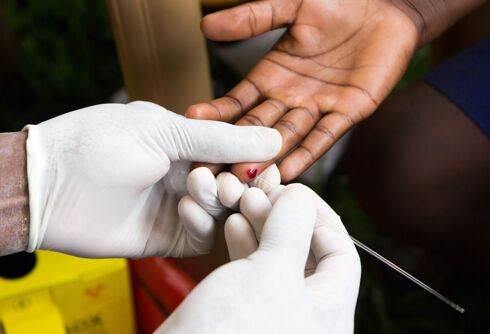The result of the 303 Creative LLC v. Elenis ruling — decided on June 30, 2023 in favor of a Colorado web designer seeking permission to discriminate against LGBTQ+ customers — has left many LGBTQ+ people reeling, wondering how exactly this decision might affect not only our day-to-day lives but also the rights we have only recently earned.
In her dissenting opinion, Supreme Court Justice Sonia Sotomayer wrote: “By issuing this new license to discriminate… the immediate, symbolic effect of the decision is to mark gays and lesbians for second-class status. In this way, the decision itself inflicts a kind of stigmatic harm, on top of any harm caused by denials of service.”
Related:
Christian web designer told Supreme Court she couldn’t make wedding websites. That’s not true.
A key fact that bolstered Lorie Smith’s victimhood narrative has been shown to be untrue after a crucial discovery was made.
It’s a terrifying prediction — but how accurate is it, and how alarmed do we need to be?
Dive deeper every day
Join our newsletter for thought-provoking commentary that goes beyond the surface of LGBTQ+ issues
Nowhere has the answer to this question been made clearer than in Michigan, a state proud of its recent progressive victories. In March 2023, Governor Gretchen Whitmer (D) led a successfful effort to enshrine protections for LGBTQ+ Michiganders into the state’s civil rights bill, nearly 50 years after it was passed. In July, she worked to pass HB 4616 and 4617, banning conversion therapy for minors. And she is not alone in this fight: a July 2022 case decided by the Michigan Supreme Court ruled that existing anti-discrimination laws implicitly include sexual orientation and gender identity.
But these state-level successes have triggered regressive backlash. Michiganders have unexpectedly found themselves at the core of the ongoing fight for LGBTQ+ rights. As the Supreme Court argued the 303 Creative case, city council members in Hamtramck, MI, unanimously voted (on June 17th, in the heart of Pride month) to ban the Pride flag from city property. The vote ignited a fiery debate: Was the council’s decision made, as it argued, in an attempt to represent all of their constituents equally or, as many others felt, was it made maliciously and with the intent of silencing queer voices?
Thirteen days later, these questionable motives sped to the forefront of the national consciousness when the Supreme Court announced its 303 Creative decision, with many saying the ruling was never about free speech. But motive aside, the ruling had already begun to inspire others. Validated by the decision, the owner of Studio 8 Hair Lab in Traverse City, MI, took to social media in early July to inform her trans clients that they were “not welcome” and advise them to “seek services at a local pet groomer.” Despite backlash, the owner’s now-private social media accounts still read: “A private CONSERVATIVE business that does not cater to woke ideologies.”
Clearly, Justice Sotomayer was right in calling the 303 Creative ruling a “new license to discriminate.” These incidents are unlikely to remain isolated; they have gained a federal stamp of approval and are likely only to worsen.
However, there is hope. Already, state and city legislators nationwide are pushing back. But for Michigan — the newest addition to the 23 states that explicitly prohibit discrimination based on sexual orientation and gender identity — this conflict is especially poignant.
Like most states, Michigan is consumed by a vast cultural and political divide. It is home to massive state-level progressive victories but is also a haven for hatred and discrimination. But, more importantly, it is a lesson in the importance of electing outspoken allies and hard-headed community members into positions of local, state, and federal power. In recent years, Michiganders established a Democratic majority in the state legislature, elected Governor Whitmer over her “Don’t Say Gay” opponent, and supported liberal candidates in nonpartisan elections for the Michigan Supreme Court.
Although the Hamtramck and Studio 8 incidents reveal the devastating potential of 303 Creative to encourage and validate localized homophobia, Michigan’s progressive state officials offer a comforting safeguard for their LGBTQ+ constituents. Yet, this bastion of support only exists if we commit to its maintenance. Victories at the state level and setbacks at the local level illustrate just how critical it is that we as a community ensure our voices are not just heard but also represented at every level of the governmental process.
As the effects of 303 Creative begin to spread and the 2024 presidential campaigns continue to pick up speed, voting has never been more critical. To prevent further erosion of our rights — and additional incidents like those in Traverse City and Hamtramck — we must advocate for the protections we deserve using the tools we have available.
Michigan voters have proven that the most effective way to forestall Justice Sotomayer’s prediction is to elect empathetic officials willing to fight to preserve our rights. So, as we face the ever-increasing effects of 303 Creative, recall how Michigan has moved to address rising anti-LGBTQ+ sentiment and leverage your civic rights to encourage your city and state representatives to do the same. Fighting for our rights is rarely as simple as checking a box, but it is certainly a crucial step in the right direction.
Don't forget to share:
















